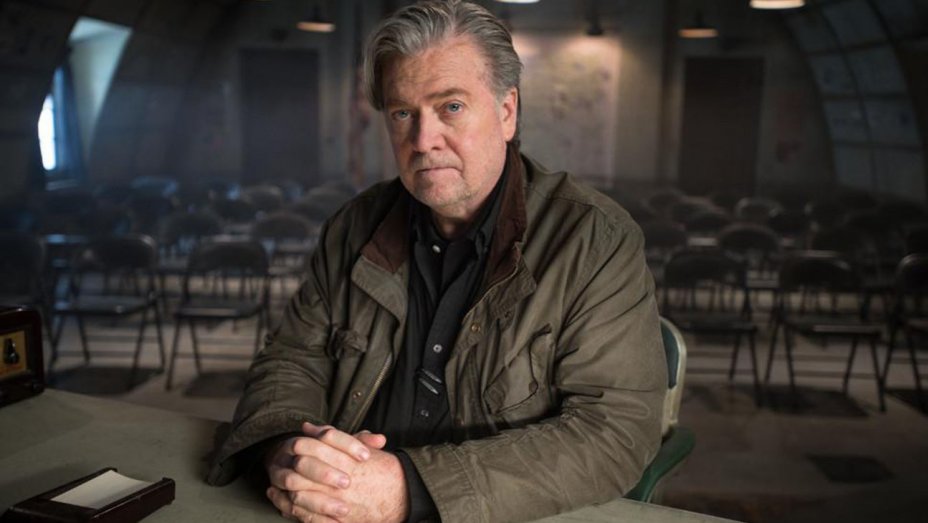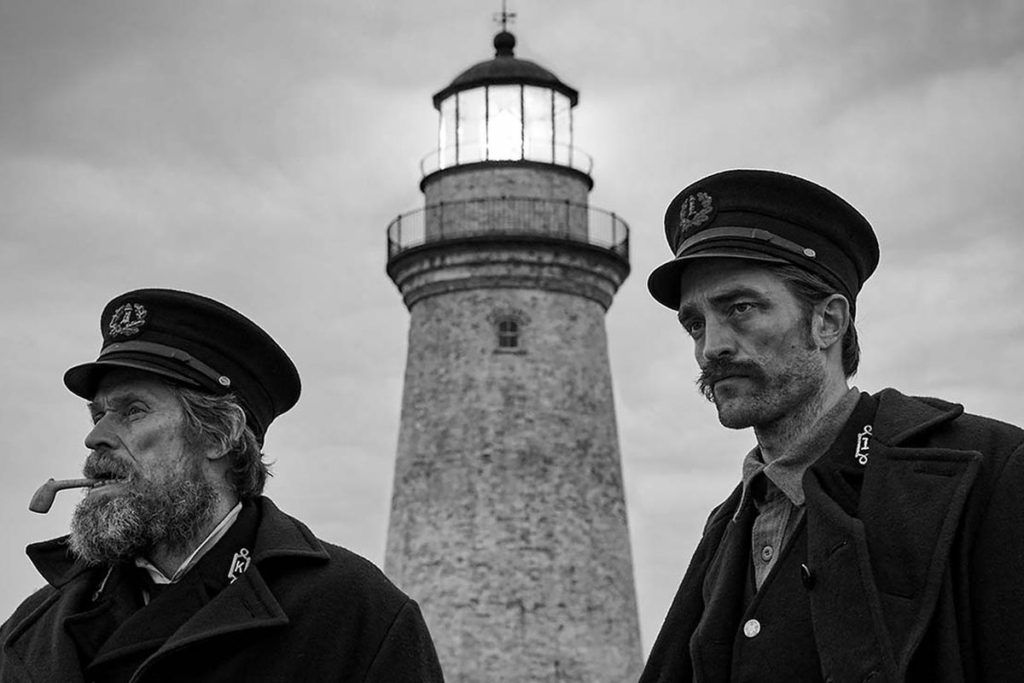American Dharma Doesn’t Know What to Say About Steve Bannon
Written by Ian Thomas Malone, Posted in Blog, Movie Reviews, Pop Culture
As repulsive as some may find him, Steve Bannon is an important figure in twenty-first century American politics. Leading the Trump campaign to victory in 2016 against seemingly all predictions earned the former head of Breitbart News a place in the history books. Esteemed director Errol Morris is no stranger to interviewing controversial Republican figures, most notably former Secretary of Defense Donald Rumsfeld in The Unknown Known.
Morris’ new documentary American Dharma ostensibly aims to peel back the layers of Bannon, known for his bombastic rhetoric and policies that many deride as racist, xenophobic, and homophobic, to say the least. The film covers a large portion of Bannon’s life, from his upbringing to his rise as a right-wing power broker. Trouble is, Morris never really stakes out a territory to craft anything revelatory about a man who’s been the subject of media fascination for years now.
For his part, Bannon consistently looks like he’s having the time of his throughout the documentary. Noting his love of Morris’ Fog of War and the inspiration it gave him to make political films of his own for conservative audiences, Bannon clearly appreciates the chance to be the director’s next project. That reverence hardly translates into cooperation, as Bannon manages to sidestep nearly every controversial question Morris throws at him.
Morris’ line of inquiry is hardly of the softball nature, but American Dharma suffers from a lack of follow-ups. There are several occasions where Morris flat out asks if some of the policies, such as the travel ban, were racist in nature. He doesn’t really get an answer, nor does he pursue one.
With a runtime of a little over ninety minutes, American Dharma understandably lacks the time to cover every noteworthy aspect of Bannon’s life or even his political career. Morris spends so little time on Bannon’s White House tenure that a casual viewer might forget he was there at all. More time is dedicated to Bannon’s favorite films than the Trump White House.
It is in this chief regard that Morris misses the mark for his film. Bannon is no stranger to marquee interviews, the recipient of Time magazine covers and 60 Minute profiles. Events such as the Access Hollywood tape scandal have been covered extensively for years by several mediums. The time that Morris dedicates to the campaign comes at the expense of a discussion of actual policy that Bannon would have been responsible for as Chief Strategist in the White House.
American Dharma fails to present any new insight on Steve Bannon, a shame considering the man’s history of loose lips. Bannon famously served as a major source for Michael Wolff’s Fire and Fury book, and gave an interview that was highly critical of the Trump administration to the progressive outlet The American Prospect days before his departure from the White House. Bannon certainly likes to share what he really thinks about policy and Donald Trump. Morris just didn’t manage to get much out of him.
Part of the problem with American Dharma may be the fact that unlike The Unknown Known, we’re still in the midst of the administration that the subject was a part of. Morris presents a broad portrait of Bannon, too often treading through the same terrain that’s been picked clean by a media that rarely talks about anything but Trump. American Dharma may have relevance to future generations unfamiliar with the daily media play-by-play, but it’s unclear what he expected a 2019 audience to make of this film. We’ve seen this show before.













